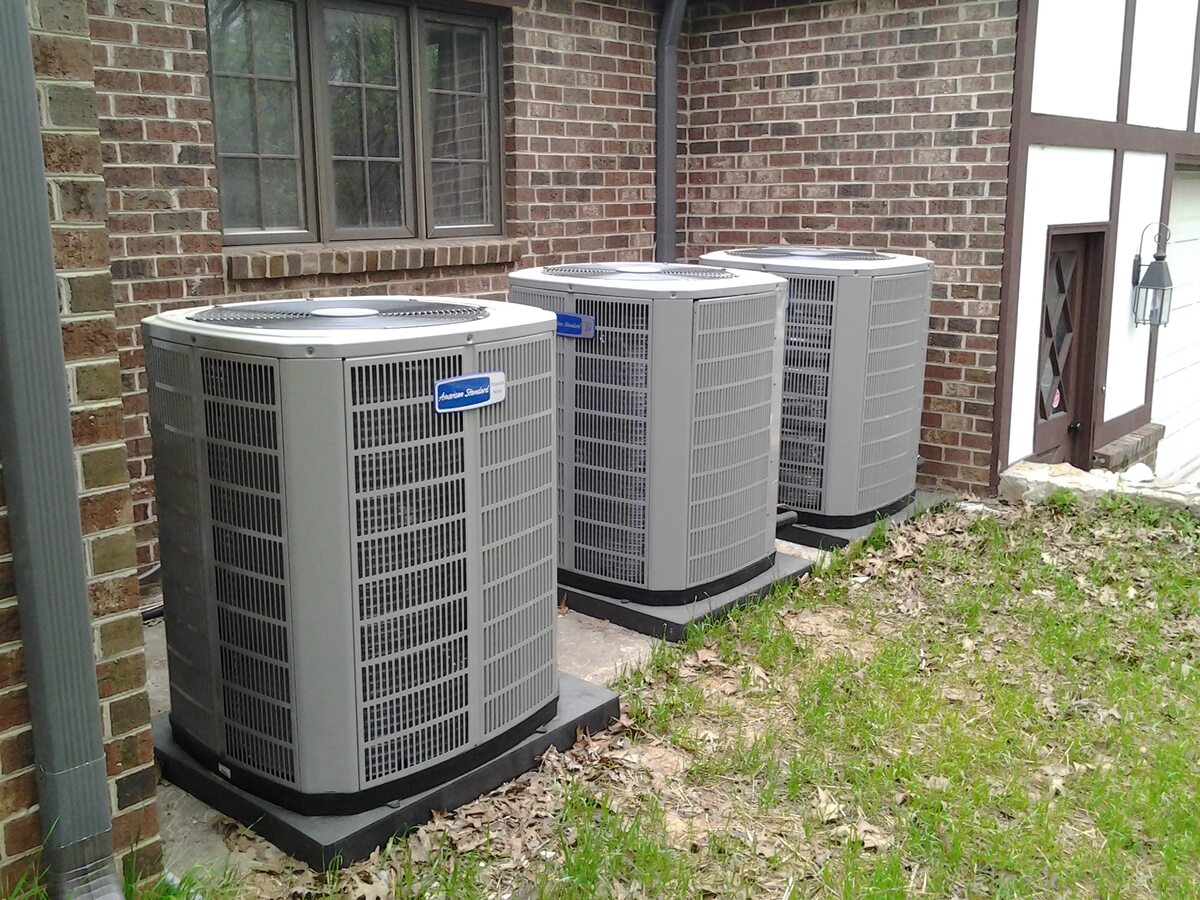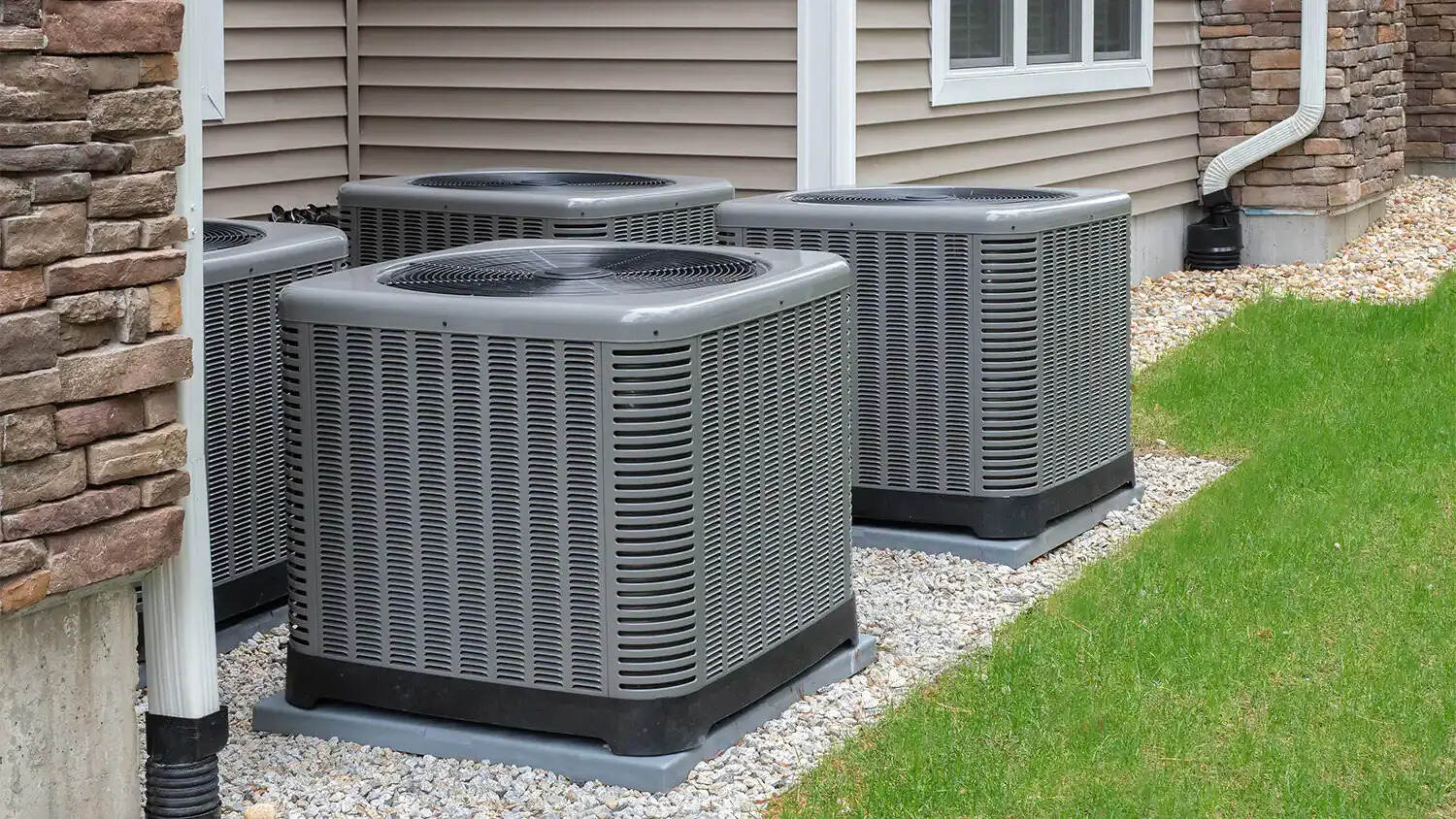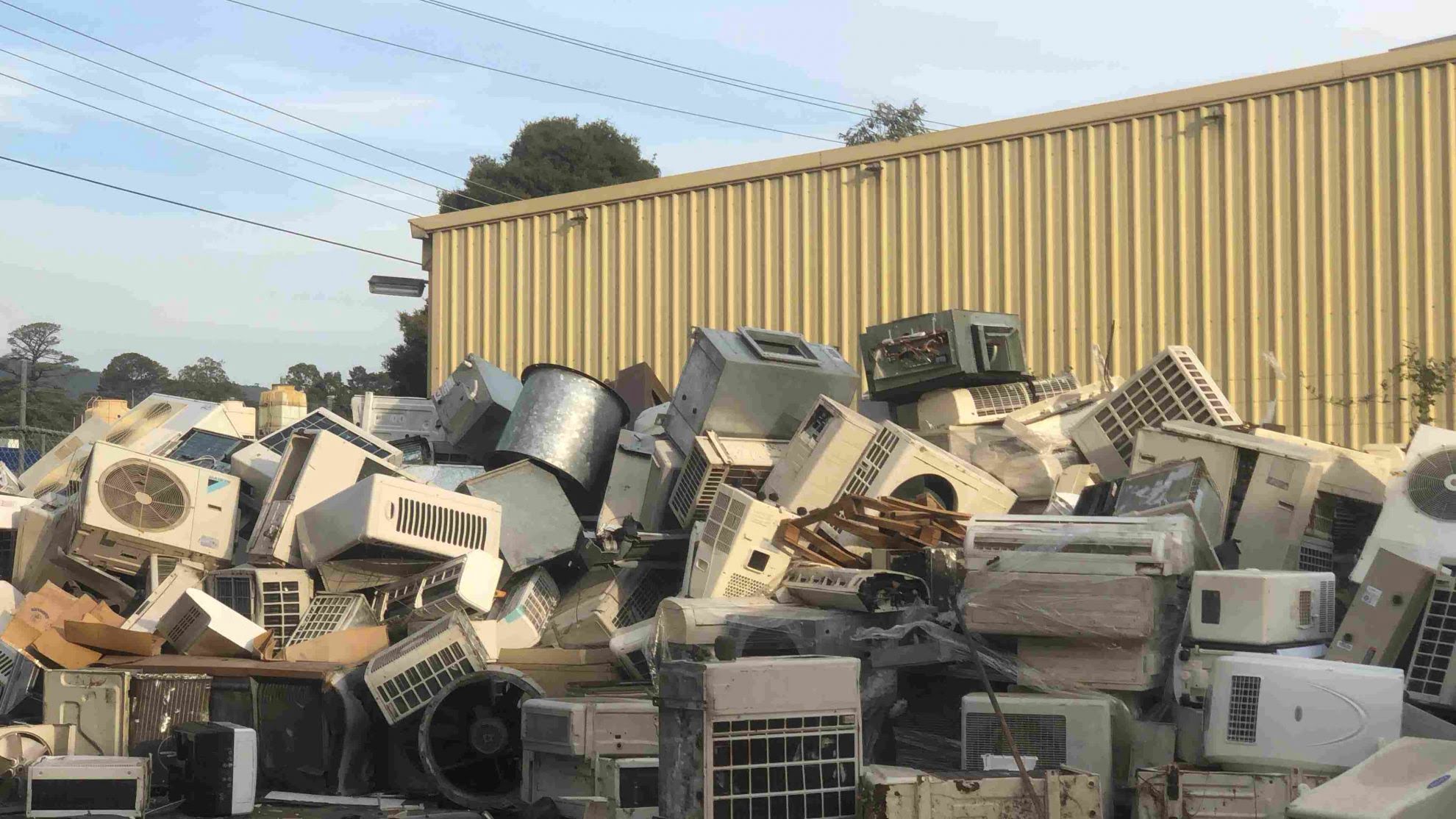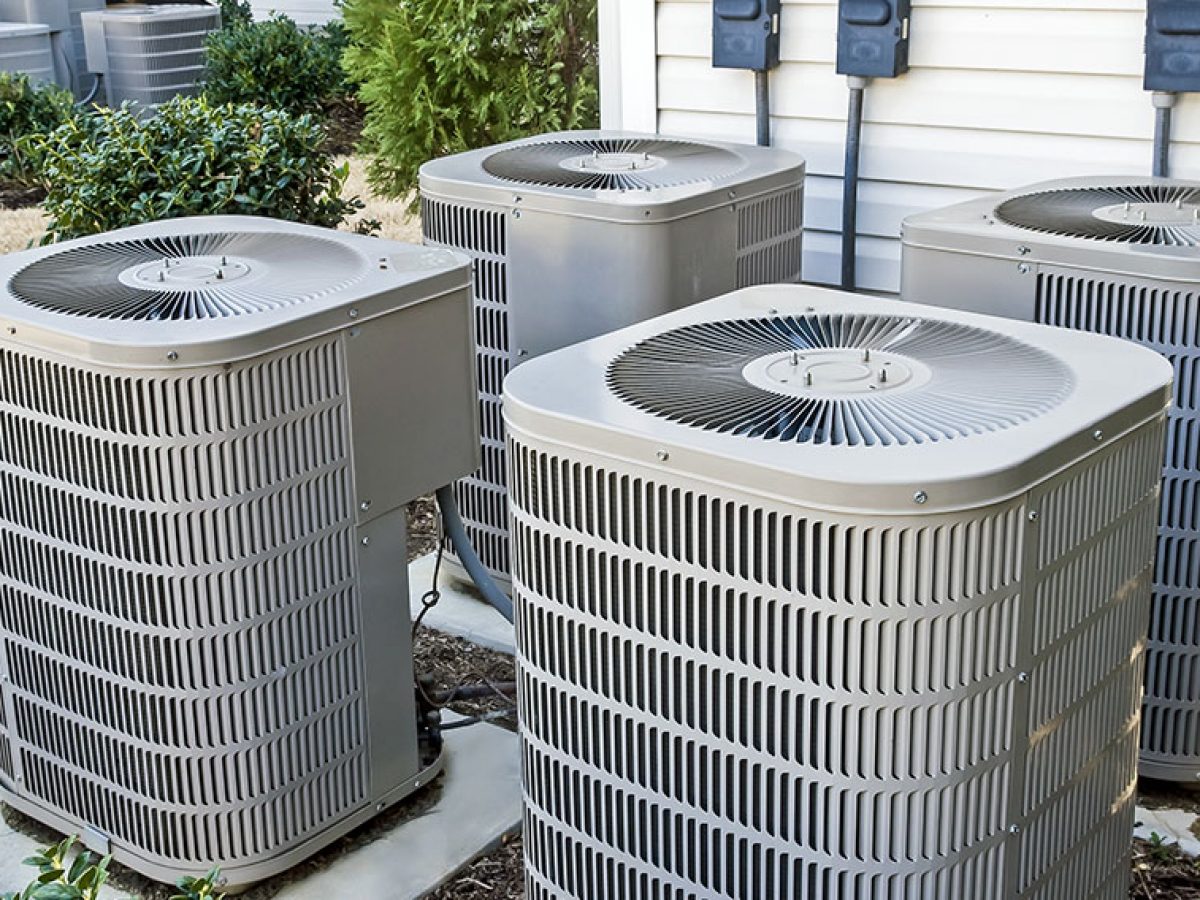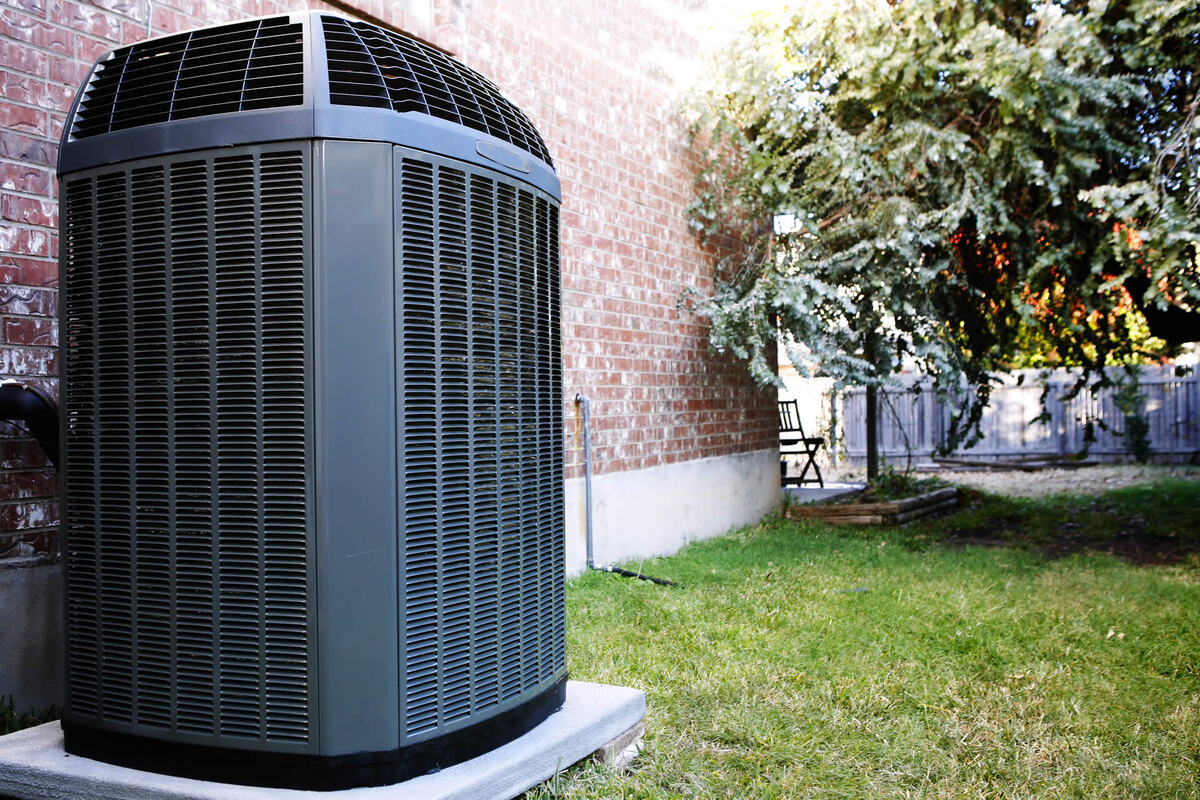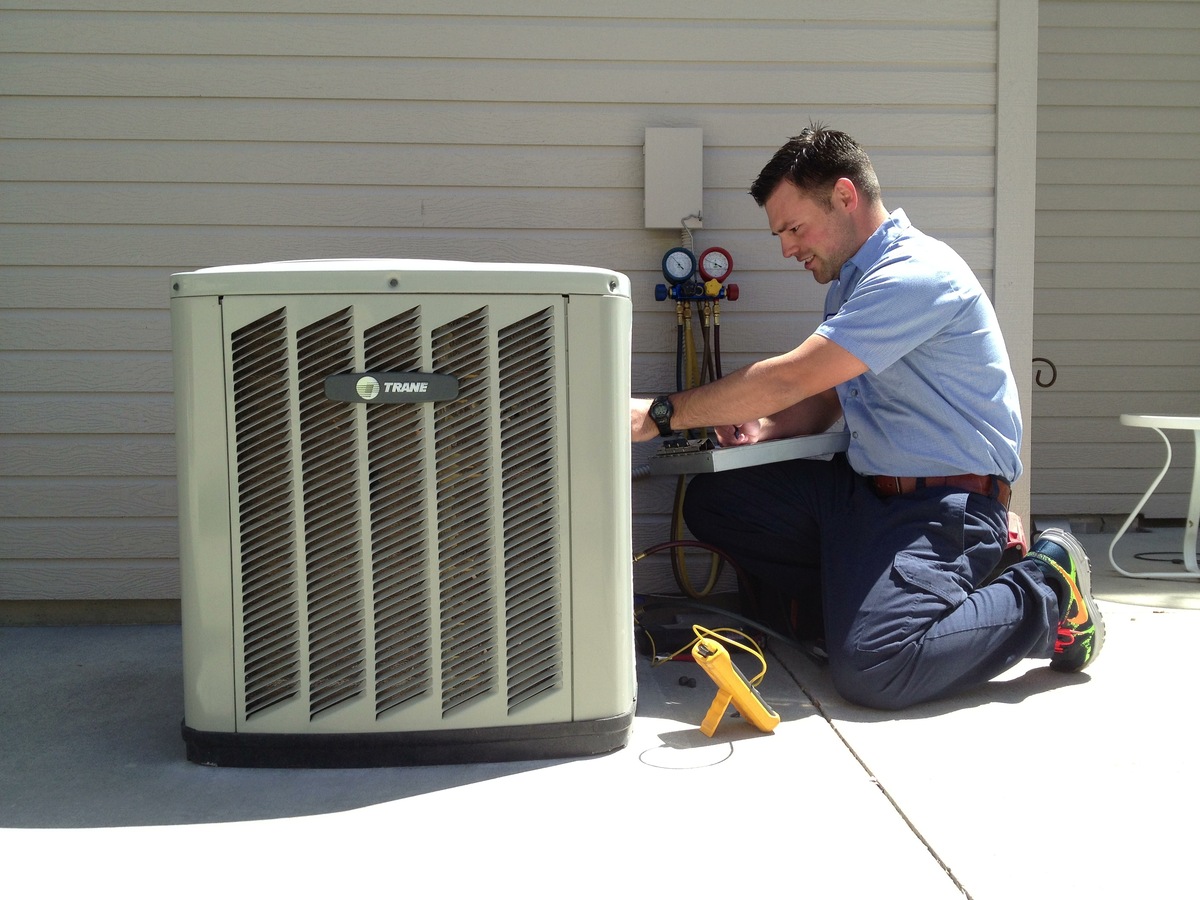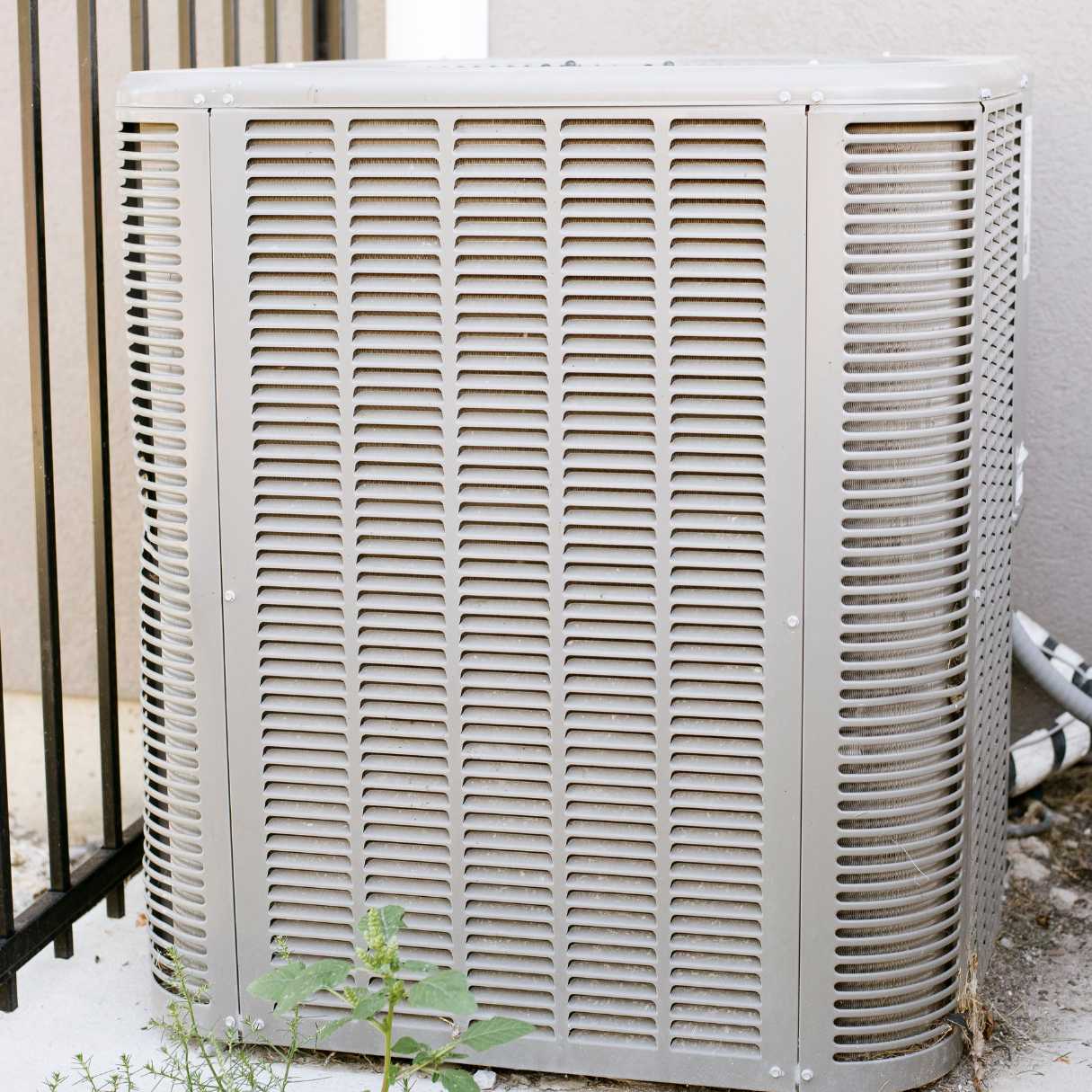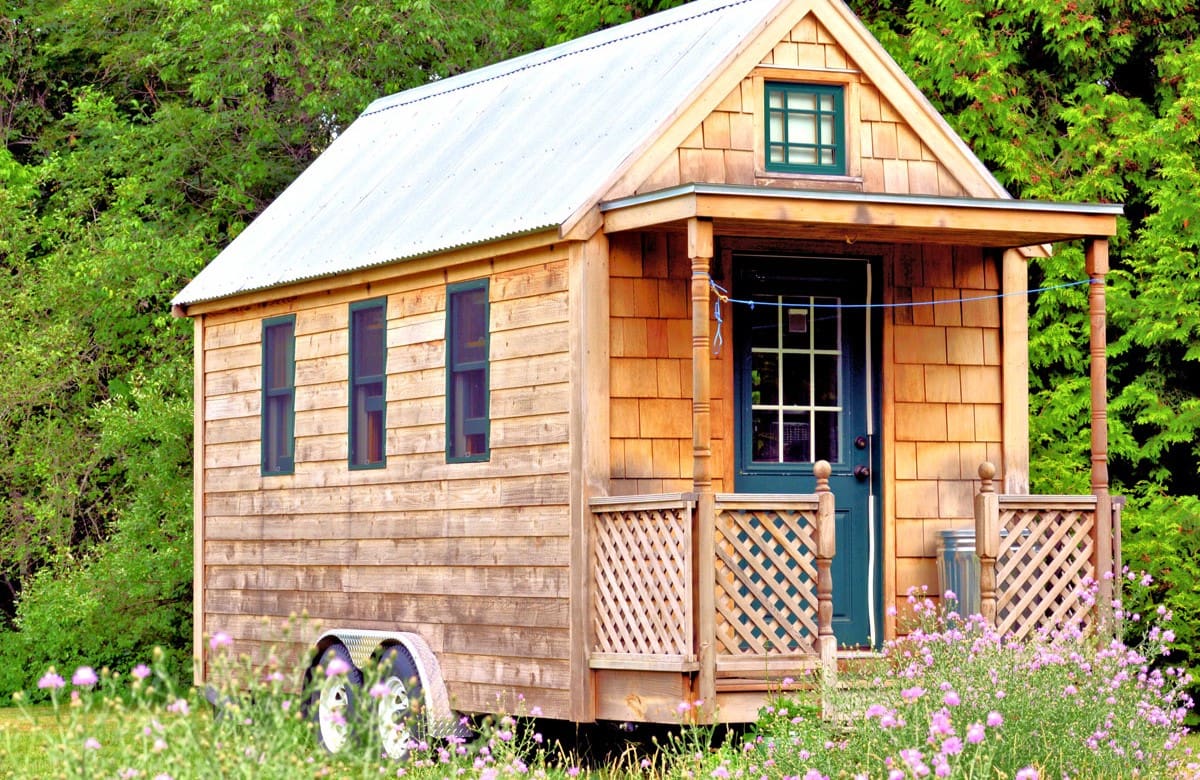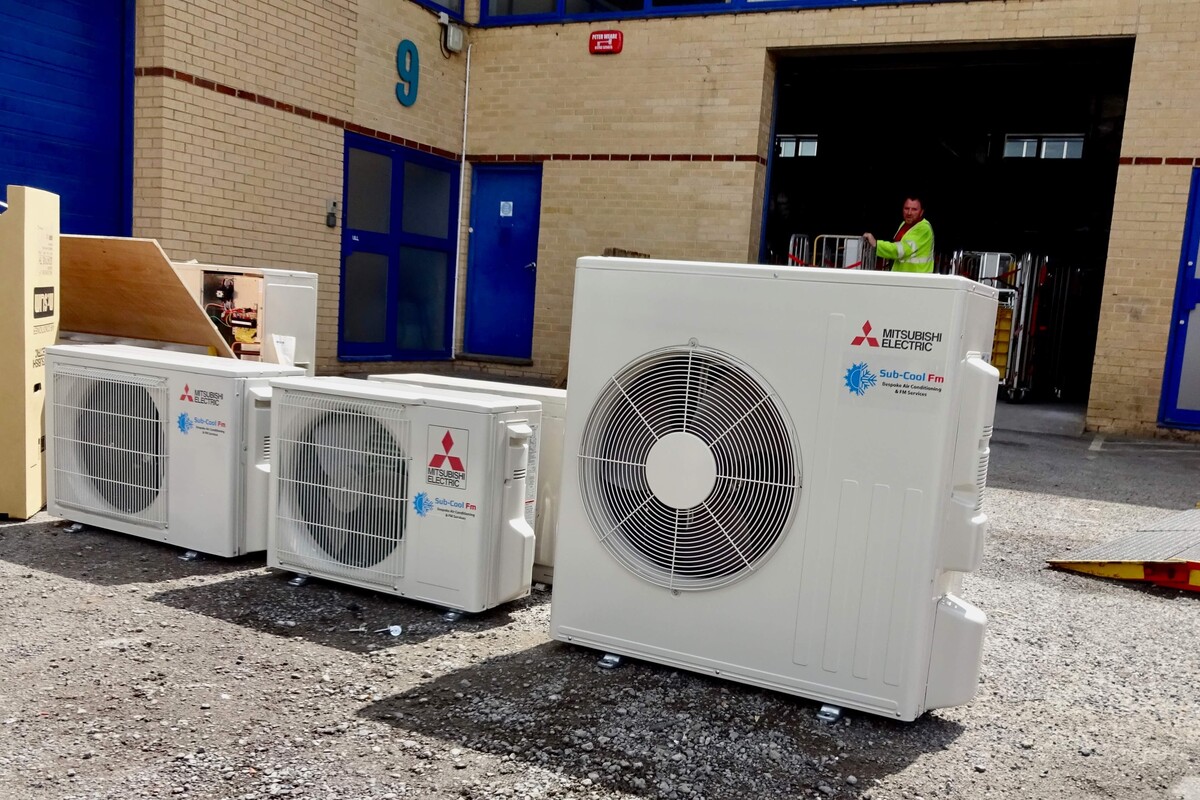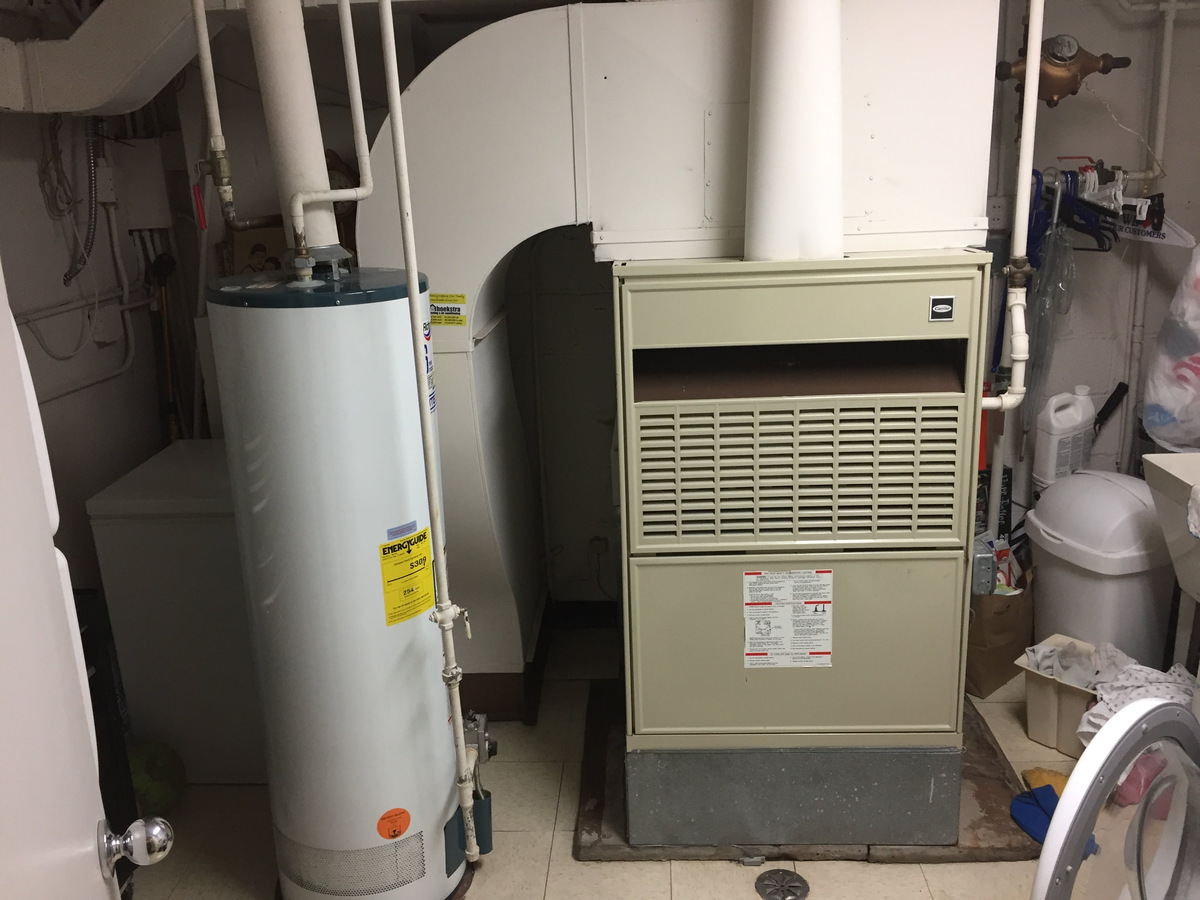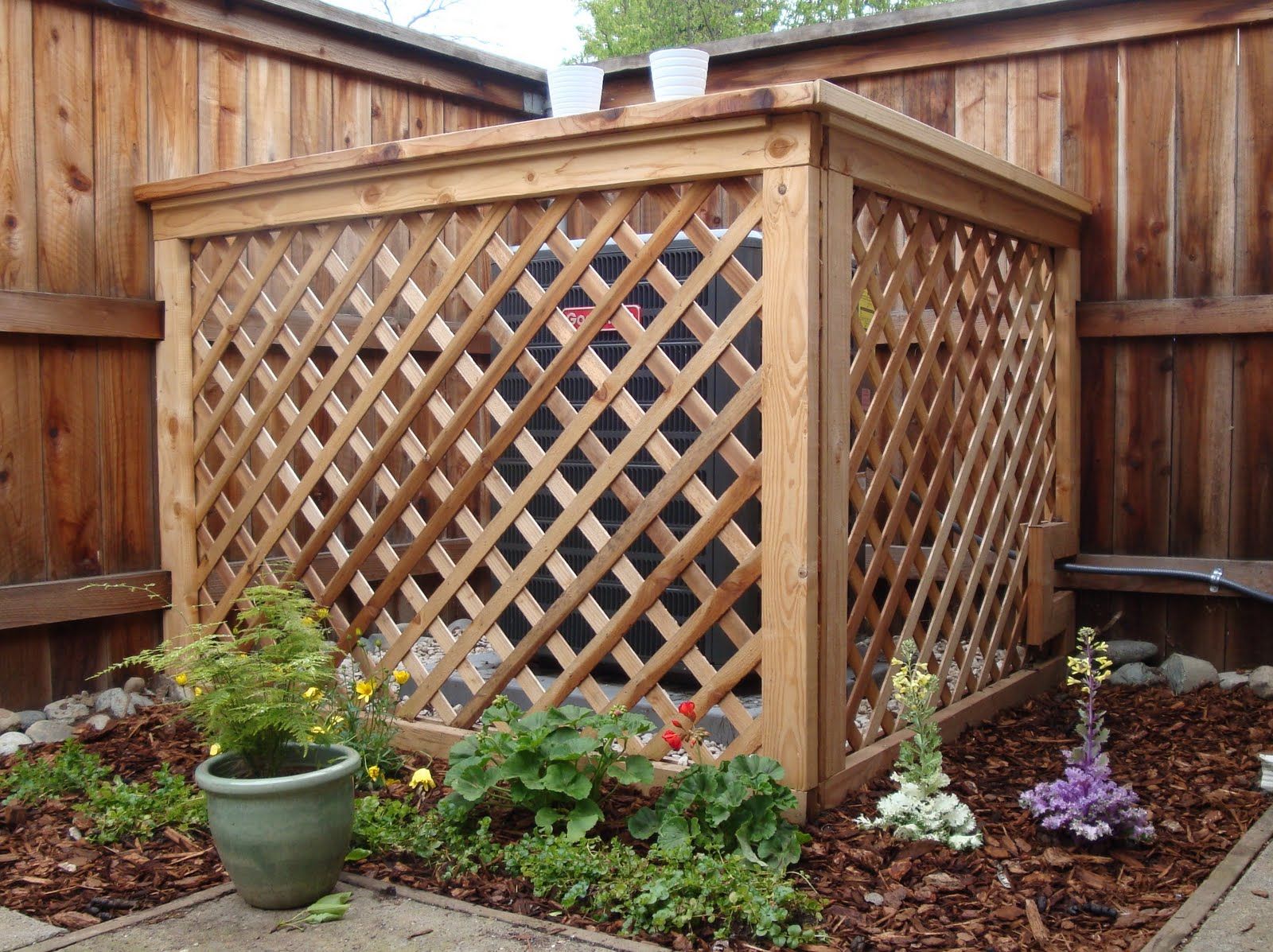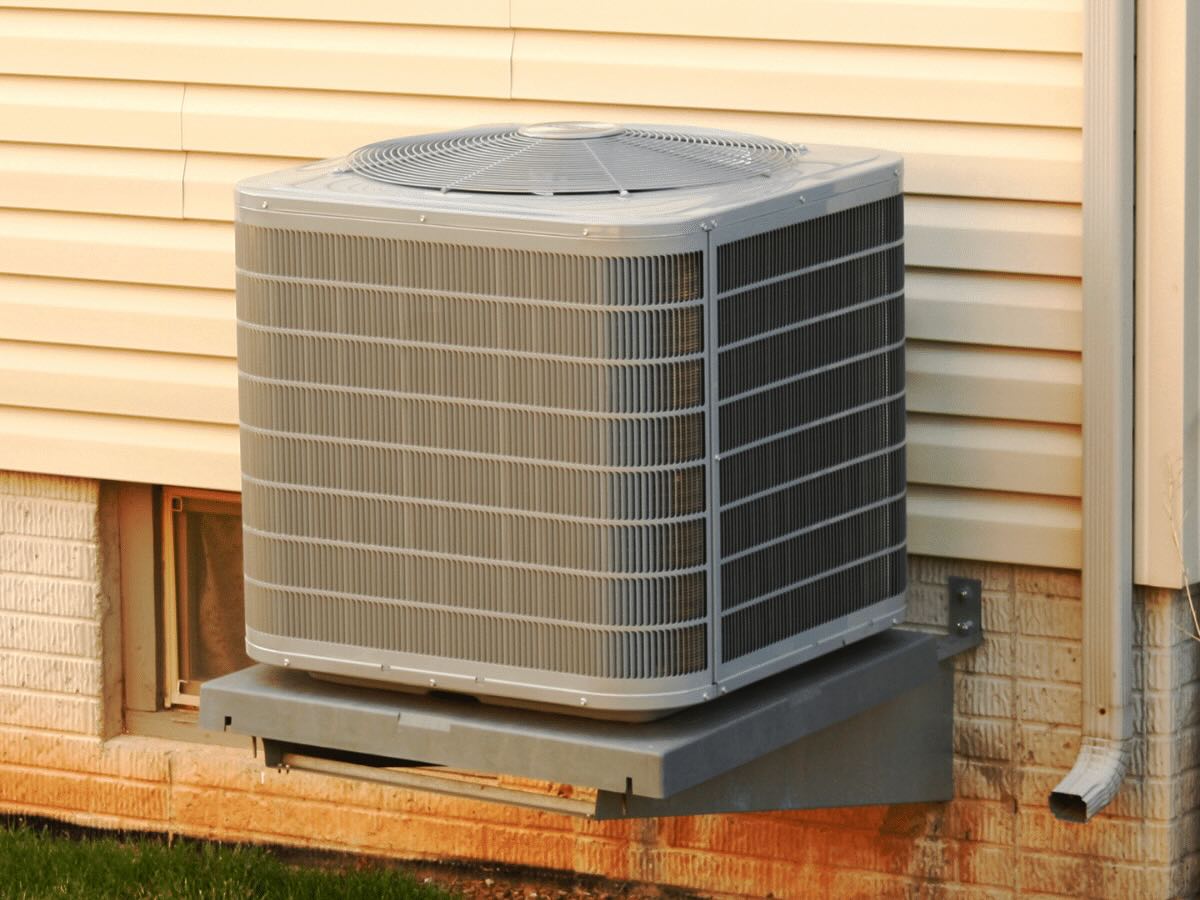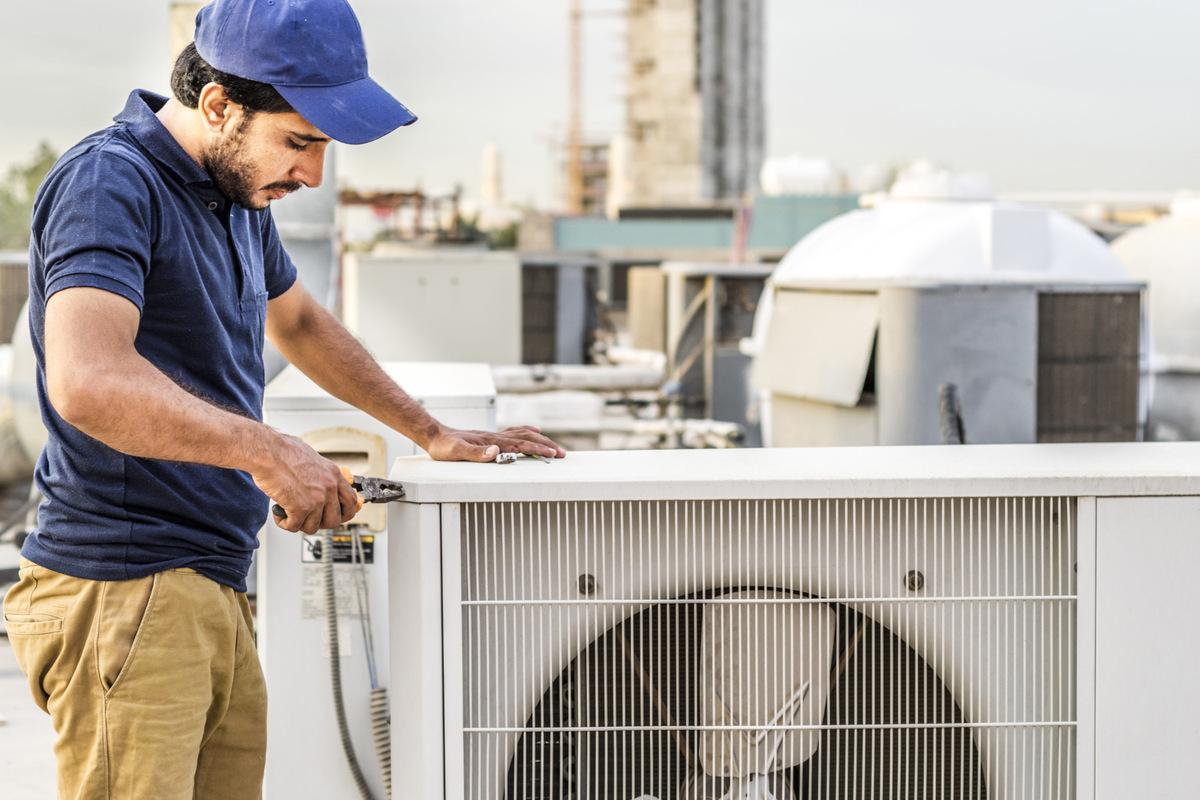Home>Home Maintenance>How To Pick A Central Air Conditioning Unit
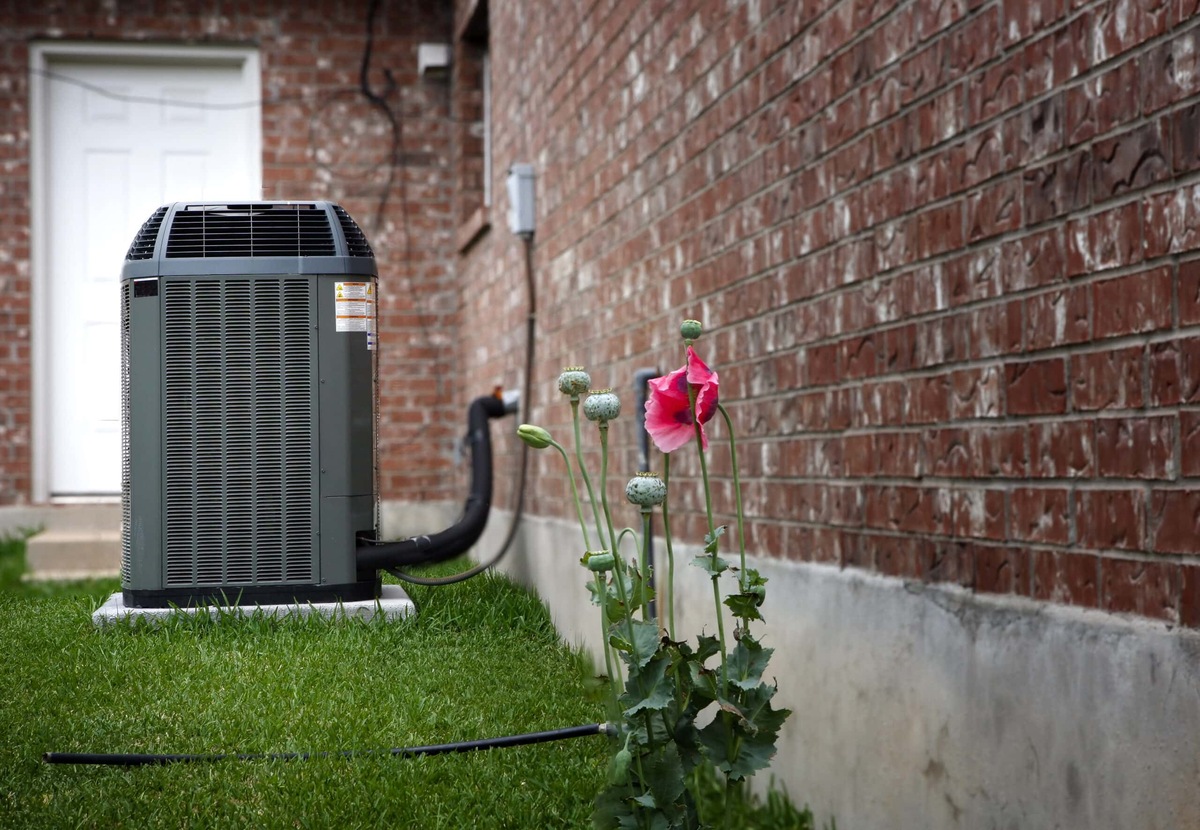

Home Maintenance
How To Pick A Central Air Conditioning Unit
Modified: August 28, 2024
Looking for a central air conditioning unit for your home? Learn how to pick the right one with our expert tips on home maintenance.
(Many of the links in this article redirect to a specific reviewed product. Your purchase of these products through affiliate links helps to generate commission for Storables.com, at no extra cost. Learn more)
Introduction
Welcome to our comprehensive guide on how to pick a central air conditioning unit. As the summer months approach, ensuring you have a reliable and efficient cooling system in place becomes a top priority. A central air conditioning unit is a popular choice for homeowners as it provides consistent cooling throughout the entire house, keeping you comfortable during the hottest days.
However, with so many options available on the market, it can be overwhelming to choose the right central air conditioner for your specific needs. That’s where this guide comes in. We’ll walk you through the process of assessing your cooling needs, understanding central air conditioning systems, determining the size of the unit, and other important considerations to make an informed decision.
By the end of this guide, you’ll have a clear understanding of what factors to consider when selecting a central air conditioning unit and how to navigate through the options available to find the perfect fit for your home.
So, let’s dive in and begin by assessing your cooling needs.
Key Takeaways:
- Assess your home’s size, climate, and specific cooling needs to determine the right central air conditioning unit. Consider factors like square footage, insulation, and the number of occupants for optimal cooling.
- Look for a reputable brand and model that aligns with your cooling requirements, efficiency ratings, and budget. Seek professional installation services to ensure proper setup and rely on regular maintenance for long-term efficiency and comfort.
Read more: What Is Central Air Conditioning System
Assessing Your Cooling Needs
Before you start browsing through the various central air conditioning units on the market, it is important to assess your cooling needs. Consider the size of your home, the climate you live in, the number of occupants, and any specific cooling requirements you may have.
Start by calculating the square footage of your home. This will give you an idea of the cooling capacity needed to effectively cool your entire living space. A rule of thumb is to allow approximately 20 BTUs (British Thermal Units) per square foot of living area. However, factors such as ceiling height, insulation, and the number of windows may require adjustments to this estimate.
Next, consider the climate you live in. If you reside in a region with extreme heat or high humidity levels, you may want to prioritize units with higher cooling capacities or additional features to manage humidity. On the other hand, if you live in a milder climate, you may be able to opt for a unit with lower cooling capacity.
Take into account the number of occupants in your home. Larger households with more people may require a unit with higher cooling capacity to maintain a comfortable temperature. Additionally, if there are individuals in your household with specific health conditions or sensitivities to temperature, you may want to consider units with advanced filtration or zoning capabilities.
Finally, think about any specific cooling requirements you may have. For example, if you have a dedicated home office or a room that receives direct sunlight for a significant portion of the day, you might want to consider a unit with additional cooling power or a programmable thermostat to ensure that space remains consistently comfortable.
By carefully assessing your cooling needs, you will be better equipped to choose a central air conditioning unit that provides optimal performance and efficiency for your unique requirements. With this information in mind, let’s move on to understanding central air conditioning systems.
Understanding Central Air Conditioning Systems
Central air conditioning systems work by extracting warm air from your home and replacing it with cool, conditioned air. These systems consist of three main components: the condenser unit, the evaporator coil, and the air handler. Understanding how these components work together will help you make an informed decision when selecting a central air conditioning unit.
The condenser unit is typically located outside your home and houses the compressor, condenser coils, and a fan. The compressor circulates refrigerant, which absorbs heat from the indoor air and transfers it to the condenser coils. The fan helps dissipate the heat into the outdoor air, allowing the refrigerant to cool down and continue the process.
The evaporator coil, on the other hand, is located inside your home and is connected to the air handler. As the refrigerant flows through the evaporator coil, it absorbs heat from the indoor air, causing the coil to become cold. After absorbing the heat, the refrigerant is sent back to the condenser unit to release the heat and repeat the cooling cycle.
The air handler, often installed in the attic or a utility closet, is responsible for circulating the conditioned air throughout your home. It consists of a blower fan, a filter, and a series of ducts that distribute the cooled air to each room. The filter helps remove dust, allergens, and other particles from the air, improving indoor air quality.
When selecting a central air conditioning unit, it is crucial to ensure compatibility with your existing system’s components. If you’re replacing an old unit, it is recommended to consult with a professional to assess the compatibility and make any necessary modifications or upgrades.
Now that you have a better understanding of central air conditioning systems, let’s move on to determining the size of the unit.
Determining the Size of the Unit
Choosing the right size for your central air conditioning unit is essential for optimal cooling performance and energy efficiency. Undersized units may struggle to cool your home adequately, while oversized units can lead to excessive energy consumption and humidity issues. To determine the appropriate size, it is essential to consider factors such as square footage, insulation, and climate.
The square footage of your home is a critical factor in sizing your central air conditioning unit. As mentioned earlier, a general rule of thumb is to allocate approximately 20 BTUs (British Thermal Units) per square foot of living space. However, other factors can influence this estimate.
Insulation plays a crucial role in maintaining consistent temperatures within your home. Well-insulated homes retain cold air more effectively, allowing for a smaller unit size. Similarly, poor insulation can result in higher cooling needs, requiring a larger unit to achieve the desired temperature. Consider the quality and condition of your insulation when determining the size of your unit.
The climate in which you live is also an important factor. Hotter climates with high temperatures and humidity levels may require larger units to keep your home cool and comfortable. On the other hand, in cooler climates, a smaller unit might suffice. It is worth consulting with HVAC professionals or using online calculators to account for these regional considerations.
It is crucial to note that size is not solely dependent on square footage. Variables such as the number of windows, ceiling height, and the orientation of your home can impact the cooling requirements. Large windows or southern-facing rooms may collect more heat and require a larger unit to compensate.
It is highly recommended to consult with an HVAC professional to perform a thorough assessment of your cooling needs and accurately determine the ideal size for your central air conditioning unit. They have the expertise to consider all the relevant factors and recommend the appropriate size for your specific home.
Now that you understand how to determine the size of your unit, let’s explore efficiency ratings and why they matter.
Efficiency Ratings
Efficiency ratings are an important consideration when selecting a central air conditioning unit. They indicate how effectively the unit converts electrical energy into cooling output, which directly affects both your comfort and energy costs. Understanding efficiency ratings will help you choose a unit that provides maximum cooling performance while minimizing your environmental impact and utility bills.
SEER (Seasonal Energy Efficiency Ratio) is a commonly used efficiency rating for air conditioning units. It measures the cooling output of the unit in relation to the energy consumed over an entire cooling season. The higher the SEER rating, the more efficient the unit is. In the United States, the minimum SEER rating for new units is typically 13, but units with higher ratings, such as 16 or 18 SEER, offer greater energy efficiency.
Higher SEER ratings not only save energy but also provide better comfort. Units with higher ratings can maintain more consistent temperatures and humidity levels while consuming less electricity. They also tend to have advanced features like variable-speed motors, two-stage compressors, and smart thermostat compatibility, allowing for more precise temperature control and energy optimization.
While units with higher SEER ratings may come with a higher upfront cost, the energy savings over time can offset the initial investment. Additionally, many utility companies offer rebates or incentives for homeowners who choose energy-efficient units, further reducing the overall cost.
When considering efficiency ratings, it is important to strike a balance between energy savings and your specific cooling needs. While a higher SEER rated unit may seem appealing, it may not be necessary if you live in a milder climate or have a lower cooling load. Consulting with HVAC professionals can help you determine the optimal SEER rating for your home and budget.
Moreover, it’s worth noting that efficiency ratings are not the only factor to consider when selecting a central air conditioning unit. The overall performance, reliability, brand reputation, and warranty should also be taken into account.
Now that you understand the importance of efficiency ratings, let’s move on to considerations for installation.
Read more: How Does Home Central Air Conditioning Work
Considerations for Installation
Proper installation is crucial for the performance and longevity of your central air conditioning unit. Before proceeding with the installation, there are several key considerations to keep in mind to ensure a smooth and efficient process.
First and foremost, it is essential to hire a professional HVAC contractor for the installation. They have the expertise, knowledge, and tools to properly install the system, ensuring it operates at its optimal capacity. DIY installation can lead to mistakes, poor performance, and even voiding the manufacturer’s warranty.
Once you’ve chosen an HVAC contractor, they will assess your home to determine the best location for the condenser unit. It should be placed in an area with sufficient airflow, away from obstructions like shrubs, fences, or nearby structures that could impede the unit’s performance. The location should also consider noise levels, ensuring that the unit is not situated near bedrooms or outdoor seating areas.
The installation process should include proper positioning and mounting of the condenser unit, connecting the refrigerant lines, and ensuring proper airflow through the ductwork. The contractor should also verify that the electrical connections are correctly installed and grounded for safety.
In addition to installation, proper sizing and design of the ductwork are crucial. The ducts should be appropriately sized and sealed to ensure efficient airflow throughout your home. Leaky or poorly insulated ducts can lead to air loss, reduced efficiency, and uneven cooling.
Furthermore, consider adding thermostats with programmable or smart features during the installation process. These advanced thermostats allow for better temperature control, scheduling, and energy management. They can help optimize your comfort while minimizing energy consumption.
Lastly, ensure that the HVAC contractor performs thorough testing and commissioning of the system after installation. This includes checking refrigerant levels, verifying proper functioning of all components, and adjusting airflow as needed to achieve optimal performance.
By considering these installation factors and hiring a professional HVAC contractor, you can ensure a high-quality installation that maximizes the efficiency and longevity of your central air conditioning unit.
Now that you understand the considerations for installation, let’s move on to selecting the right brand and model for your central air conditioning unit.
When picking a central air conditioning unit, consider the size of your home, energy efficiency, and the unit’s cooling capacity to ensure it can effectively cool your space without wasting energy.
Selecting the Right Brand and Model
When it comes to selecting the right brand and model for your central air conditioning unit, it is important to consider factors such as reputation, reliability, features, and warranty coverage. Choosing a reputable brand and a model that meets your specific cooling needs will ensure a reliable and efficient cooling solution for your home.
Start by researching and comparing different brands. Look for brands with a long-standing reputation for quality and reliability in the HVAC industry. Reading customer reviews and seeking recommendations from trusted sources can give you valuable insights into the performance and customer satisfaction of different brands.
Additionally, consider the availability of service and support for the brand. It is crucial to choose a brand with a strong network of authorized dealers and service providers in your area. This ensures that you can easily find qualified technicians for routine maintenance, repairs, and warranty services when needed.
Next, evaluate the specific models offered by the brands you are considering. Look for models that align with your cooling needs, efficiency requirements, and budget. Consider features such as variable-speed compressors, multi-stage cooling, energy-saving modes, and smart thermostat compatibility. These features can enhance your comfort and energy efficiency.
It is also important to study the warranty coverage offered by the brand. A comprehensive warranty ensures that you are protected in case of any manufacturing defects or malfunctions. Look for brands that offer generous warranty terms, including coverage for parts and labor, and be sure to understand the terms and conditions of the warranty before making a final decision.
Furthermore, consider the availability of replacement parts and the ease of obtaining them for the brand and model you choose. Opting for a widely available and well-supported brand can make future repairs and maintenance easier and more cost-effective.
Lastly, compare prices for the brands and models you are considering. While cost should not be the sole determining factor, it is important to find a unit that offers a reasonable balance between price and performance. Keep in mind that higher efficiency units may have a higher upfront cost but can save you money in the long run through energy savings.
By carefully considering the brand reputation, model features, warranty coverage, and price, you can confidently select the right brand and model that best meets your cooling needs and provides reliable and efficient cooling for your home.
Now that we have covered selecting the right brand and model, let’s move on to comparing prices and getting quotes.
Comparing Prices and Getting Quotes
When it comes to purchasing a central air conditioning unit, comparing prices and getting quotes from multiple sources is crucial. This allows you to find the best deal, understand the overall cost, and make an informed decision based on your budget and needs.
Start by researching local HVAC contractors and suppliers in your area. Look for established companies with positive reviews and a reputation for quality products and services. You can ask for recommendations from friends, neighbors, or colleagues who have recently installed central air conditioning systems. Additionally, online directories or review websites can provide valuable insights into the reputation and reliability of different professionals in your area.
Once you have identified a few potential contractors or suppliers, reach out to them and request quotes for the central air conditioning unit you are interested in. Provide them with the necessary information, such as the size of your home, any specific cooling requirements, and any additional features you are seeking.
When comparing quotes, it is important to consider more than just the bottom line cost. Look for detailed breakdowns of what is included in the quote, including the cost of the unit, installation labor, any additional equipment or accessories, and any warranty coverage. Be sure to ask about any potential additional costs that may arise during installation or due to specific requirements of your home.
Don’t hesitate to ask questions if something is unclear or if you require further explanation. A reputable HVAC professional should be transparent and willing to provide you with all the necessary information to help you make an informed decision.
In addition to comparing prices, take into account the reputation and experience of the contractor or supplier. Their expertise, attention to detail, and quality of workmanship are all important factors that will contribute to the long-term performance and efficiency of your central air conditioning system.
Once you have received and compared multiple quotes, evaluate them based on price, overall value, and your level of comfort and confidence in the contractor or supplier. Remember, the cheapest option may not always be the best choice. Consider the reputation, experience, and customer service provided by each professional.
By comparing prices and quotes, you can make an informed decision based on the overall cost, expertise of the professional, and the value provided. This will ensure that you invest in a central air conditioning unit that meets your needs and offers reliable cooling for years to come.
Now that we have covered comparing prices and getting quotes, let’s move on to seeking professional installation services.
Seeking Professional Installation Services
When it comes to installing a central air conditioning unit, seeking professional installation services is essential. Proper installation ensures optimal performance, energy efficiency, and durability of your cooling system. Here are some key reasons why you should rely on professionals for the installation:
1. Experience and Expertise: Professional HVAC technicians have the knowledge and experience to handle the intricacies of central air conditioning installation. They understand the technical aspects involved, including electrical connections, refrigerant handling, and ductwork installation. Their expertise ensures that your unit operates safely and efficiently.
2. Equipment and Tools: HVAC professionals have access to specialized tools and equipment required for installation. They are equipped to handle all aspects of the installation process, from mounting the condenser unit to connecting the refrigerant lines and ensuring proper ventilation. Their tools and equipment enable them to complete the installation efficiently and correctly.
3. Compliance with Codes and Regulations: HVAC installations must adhere to local building codes and regulations. Professional installers are familiar with these requirements and ensure that your installation meets all necessary standards. This ensures the safety and legality of your central air conditioning system.
4. Warranty Protection: Most central air conditioning units come with manufacturer warranties that require professional installation for the warranty to be valid. By hiring professional installation services, you can ensure that your unit remains under warranty, providing you with peace of mind and protection in case of any issues.
5. Time and Hassle Savings: Properly installing a central air conditioning unit can be complex and time-consuming. By hiring professionals, you can save yourself the hassle and frustration of attempting a DIY installation. Professionals efficiently handle the entire installation process, allowing you to focus on other important tasks.
When seeking professional installation services, ensure that you choose a reputable HVAC contractor. Look for certifications, licenses, and insurance to ensure their legitimacy and professionalism. Reading reviews and seeking recommendations from trusted sources can also help you find reliable professionals in your area.
Before installation, consult with the HVAC contractor and discuss your specific needs and preferences. They will assess your home, evaluate any unique requirements, and recommend the appropriate unit size and features to suit your needs. They will also provide you with a clear outline of the installation process, associated costs, and timelines.
By relying on professional installation services, you can ensure a hassle-free and successful installation of your central air conditioning unit. Their expertise and experience will help optimize the performance and longevity of your system, keeping you cool and comfortable for years to come.
Now that we have covered the importance of professional installation, let’s move on to maintaining and troubleshooting your central AC unit.
Maintaining and Troubleshooting Your Central AC Unit
Maintaining and troubleshooting your central air conditioning unit is essential for its longevity, efficiency, and optimal performance. Regular maintenance and prompt troubleshooting can help identify and resolve issues before they escalate, keeping your home cool and comfortable. Here are some key tips for maintaining and troubleshooting your central AC unit:
1. Regular Maintenance: Schedule annual maintenance with a professional HVAC technician to ensure that your central AC unit is in top shape. This includes cleaning or replacing the air filters, checking and cleaning the evaporator and condenser coils, inspecting electrical connections, lubricating moving parts, and testing system performance. Regular maintenance helps improve efficiency, prevents breakdowns, and extends the lifespan of your unit.
2. Clean Air Filters: Dirty or clogged air filters restrict airflow, reduce efficiency, and strain the system. Clean or replace air filters every one to three months, or as recommended by the manufacturer. This simple task improves indoor air quality and helps your unit operate smoothly.
3. Clear the Surrounding Area: Make sure the outdoor unit is free from debris, vegetation, and any obstructions. Trim any nearby plants or shrubs to ensure proper airflow. A clear and unobstructed unit allows for efficient heat exchange and optimal cooling performance.
4. Check Thermostat Settings: Regularly inspect and adjust thermostat settings to match your cooling needs. Consider programmable or smart thermostats that allow you to set schedules and adjust temperatures remotely for enhanced energy efficiency.
5. Check for Airflow Issues: If you notice weak or uneven airflow, it may indicate issues with the ductwork or a blockage in the system. Inspect and clean the vents and registers, and ensure that the ductwork is properly sealed and insulated for efficient airflow throughout your home.
6. Monitor Cooling Performance: Pay attention to any changes in cooling performance, such as decreased airflow, warm air blowing, or inconsistent temperatures. These could indicate underlying issues, such as refrigerant leaks, a malfunctioning compressor, or a faulty thermostat. If you notice any performance issues, contact a professional HVAC technician for troubleshooting and repairs.
7. Address Strange Noises or Odors: Unusual noises, such as grinding, squealing, or banging sounds, as well as strange odors coming from your AC system, can be signs of mechanical problems or electrical issues. If you encounter any unusual sounds or smells, it is important to have them investigated by a professional technician to prevent further damage.
8. Stay Aware of Energy Usage: Keep an eye on your energy bills and monitor any unexpected spikes. Higher energy usage without a corresponding change in usage patterns could indicate an issue with your central AC system. Promptly address any abnormal energy consumption to prevent unnecessary costs and ensure the optimal efficiency of your unit.
Remember, if you are unsure about any maintenance or troubleshooting tasks, it is always best to consult with a professional HVAC technician. They have the expertise and knowledge to address any issues or concerns with your central AC unit effectively.
By maintaining and troubleshooting your central AC unit regularly, you can ensure its smooth operation, lower energy costs, and a comfortable living environment throughout the hot summer months.
Now that we’ve covered the importance of maintaining and troubleshooting, let’s conclude our comprehensive guide to picking a central air conditioning unit.
Conclusion
Choosing the right central air conditioning unit for your home is a significant decision that requires careful consideration. By assessing your cooling needs, understanding central air conditioning systems, determining the size of the unit, considering efficiency ratings, and evaluating installation and maintenance factors, you can make an informed choice that ensures comfort, efficiency, and longevity.
Start by assessing your cooling needs based on factors such as square footage, climate, number of occupants, and specific cooling requirements. This will help you determine the appropriate cooling capacity for your home.
Understanding central air conditioning systems is crucial in selecting the right unit. Familiarize yourself with the components involved, including the condenser unit, evaporator coil, and air handler. This knowledge will help you choose a unit that is compatible with your existing system and meets your cooling needs.
Determining the size of the unit is vital for optimal performance. Consider factors such as square footage, insulation, and climate to accurately determine the cooling capacity required for your home. Consulting with HVAC professionals can help you make the right calculations and select the appropriate unit size.
Efficiency ratings play a significant role in the long-term performance and energy savings of your central air conditioning unit. Research SEER ratings and choose a unit that offers the right balance between energy efficiency and your specific cooling needs.
When it comes to installation, seeking professional services ensures proper installation, compliance with codes and regulations, and warranty protection. Hiring experienced HVAC contractors will save you time, effort, and potential mistakes associated with a DIY installation.
Comparing prices and obtaining quotes from multiple sources allows you to find the best deal and choose a reputable contractor. Consider not only the cost but also the reputation, experience, and customer service provided by the contractor.
Maintaining and troubleshooting your central AC unit is essential to ensure its longevity, efficiency, and optimal performance. Regular maintenance, such as cleaning air filters, clearing the surrounding area, and monitoring cooling performance, will help identify and resolve issues in a timely manner.
To conclude, selecting a central air conditioning unit involves conducting thorough research, analyzing your specific needs, and consulting with HVAC professionals. By following the steps outlined in this guide, you can choose a unit that provides reliable cooling, optimal energy efficiency, and maximum comfort for years to come.
Now you are equipped with the knowledge and understanding to pick the perfect central air conditioning unit for your home. Stay cool and comfortable during those sweltering summer months!
Frequently Asked Questions about How To Pick A Central Air Conditioning Unit
Was this page helpful?
At Storables.com, we guarantee accurate and reliable information. Our content, validated by Expert Board Contributors, is crafted following stringent Editorial Policies. We're committed to providing you with well-researched, expert-backed insights for all your informational needs.
